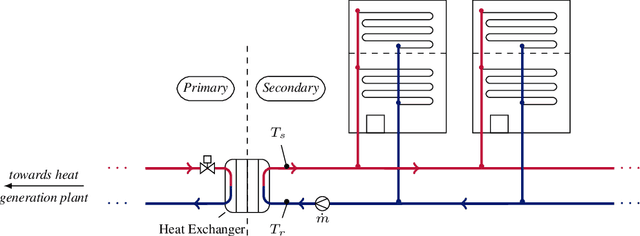Tahar Nabil
Are Time-Indexed Foundation Models the Future of Time Series Imputation?
Nov 08, 2025Abstract:Foundation models for time series imputation remain largely unexplored. Recently, two such models, TabPFN-TS and MoTM, have emerged. These models share a common philosophy that places them within the family of time-indexed foundation models. This paper presents the first large-scale empirical study of these models for zero-shot imputation, which enables missing value recovery without retraining across a wide range of scenarios. We conduct extensive univariate experiments across 33 out-of-domain datasets (approximately 1.3M imputation windows) and evaluate their ability to integrate covariates at inference time to improve accuracy without fine-tuning. Our results demonstrate that time-indexed foundation models are a powerful and practical step toward achieving general-purpose, zero-shot imputation for real-world time series.
MoTM: Towards a Foundation Model for Time Series Imputation based on Continuous Modeling
Jul 18, 2025Abstract:Recent years have witnessed a growing interest for time series foundation models, with a strong emphasis on the forecasting task. Yet, the crucial task of out-of-domain imputation of missing values remains largely underexplored. We propose a first step to fill this gap by leveraging implicit neural representations (INRs). INRs model time series as continuous functions and naturally handle various missing data scenarios and sampling rates. While they have shown strong performance within specific distributions, they struggle under distribution shifts. To address this, we introduce MoTM (Mixture of Timeflow Models), a step toward a foundation model for time series imputation. Building on the idea that a new time series is a mixture of previously seen patterns, MoTM combines a basis of INRs, each trained independently on a distinct family of time series, with a ridge regressor that adapts to the observed context at inference. We demonstrate robust in-domain and out-of-domain generalization across diverse imputation scenarios (e.g., block and pointwise missingness, variable sampling rates), paving the way for adaptable foundation imputation models.
A synthetic dataset of French electric load curves with temperature conditioning
Apr 18, 2025Abstract:The undergoing energy transition is causing behavioral changes in electricity use, e.g. with self-consumption of local generation, or flexibility services for demand control. To better understand these changes and the challenges they induce, accessing individual smart meter data is crucial. Yet this is personal data under the European GDPR. A widespread use of such data requires thus to create synthetic realistic and privacy-preserving samples. This paper introduces a new synthetic load curve dataset generated by conditional latent diffusion. We also provide the contracted power, time-of-use plan and local temperature used for generation. Fidelity, utility and privacy of the dataset are thoroughly evaluated, demonstrating its good quality and thereby supporting its interest for energy modeling applications.
Towards Optimal District Heating Temperature Control in China with Deep Reinforcement Learning
Dec 18, 2020



Abstract:Achieving efficiency gains in Chinese district heating networks, thereby reducing their carbon footprint, requires new optimal control methods going beyond current industry tools. Focusing on the secondary network, we propose a data-driven deep reinforcement learning (DRL) approach to address this task. We build a recurrent neural network, trained on simulated data, to predict the indoor temperatures. This model is then used to train two DRL agents, with or without expert guidance, for the optimal control of the supply water temperature. Our tests in a multi-apartment setting show that both agents can ensure a higher thermal comfort and at the same time a smaller energy cost, compared to an optimized baseline strategy.
 Add to Chrome
Add to Chrome Add to Firefox
Add to Firefox Add to Edge
Add to Edge